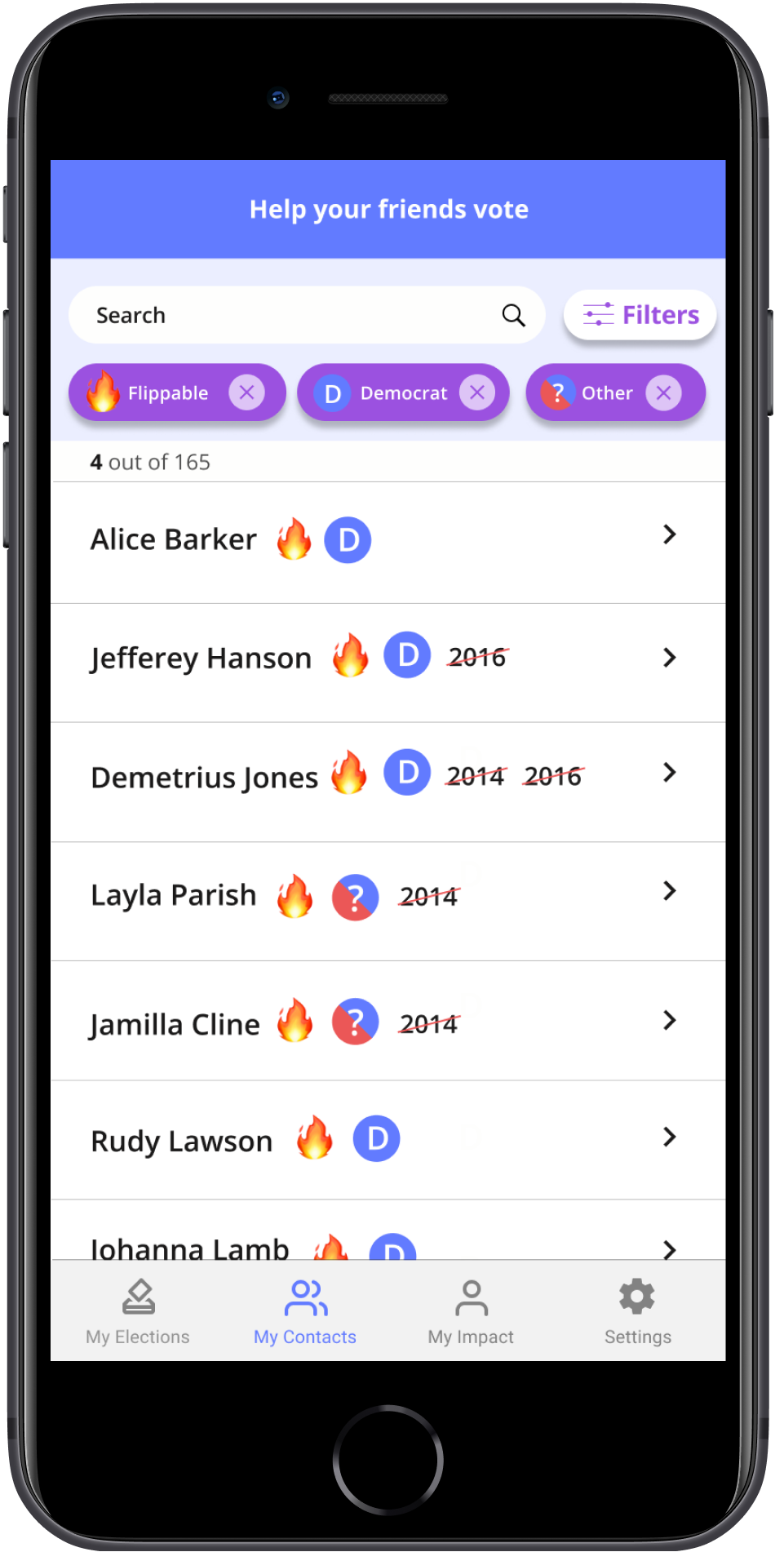Americans who decide to skip out on voting in the midterm elections Tuesday could find themselves the target of not-so-subtle texts from their friends, depending on the state they live in.

Voting information, such as name, address, phone number, party affiliation and whether or not you cast your ballot in past elections is public in some U.S. states, such as Pennsylvania, New York and New Jersey. Who U.S. citizens vote for is always private. In Canada, your voting record and participation is also private.
Some companies are trying to use this public information as leverage during the midterm elections.
Two new apps, called VoteWithMe and OutVote, pull public information from government records, such as voting information, and make it available on people’s smartphones.
The app developers said the aim is to increase voter turnout.
“VoteWithMe helps you find friends who forgot to vote in the last midterm elections, and those who live in places with close elections, so you can remind them to vote,” the company’s website states.
http://www.youtube.com/watch?v=bZsJ4j0HmbQ
- Quebec premier calls on Bloc Québécois to help topple Trudeau government
- NDP to join Bloc in backing Liberals against non-confidence vote
- Via Rail CEO calls 10-hour train delay ‘unacceptable,’ says new evacuation plan in place
- Ethics commissioner will not investigate Boissonnault over ‘Randy’ texts, says the matter is closed
Once you download the app, it syncs your phone’s address book with the voter database to find people you know who may be eligible to vote in upcoming elections. The app then ranks your contacts by who is most in need of a “nudge” in order to show up on election day. You can send a text or call to remind them.

Get daily National news
The apps also distinguish engaged voters from apathetic ones. For example, if someone in your contacts has a perfect voting record, OutVote identifiers will label him or her as a “super voter” and put a smiley face emoji with red hearts for eyes next to the name. If you have a history of not voting, there will be a sad-face emoji with a tear next to your name.
A 2008 study out of Cambridge University found there is a “profound” importance of social pressure as an incentive to political participation.
“Substantially higher turnout was observed among those who received mailings promising to publicize their turnout to their household or their neighbours,” the study stated.
What are the dangers?
Ira Rubinstein, a senior fellow at the Information Law Institute at New York University School of Law, told the Times this technology could have unintended consequences.
For example, people could use the apps to create contact lists of acquaintances, strangers or public figures they do not like and then publicize their voting histories.
“I don’t think there are any particular safeguards to prevent people from just assembling a contact list for more malicious purposes, acquiring this information and using it to harass or coerce people,” Rubinstein said.
















Comments